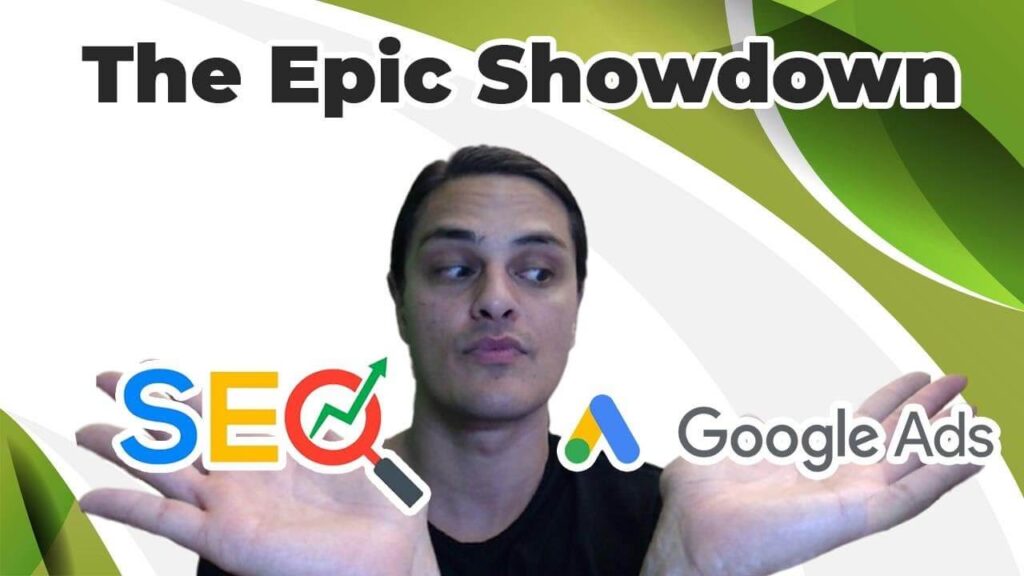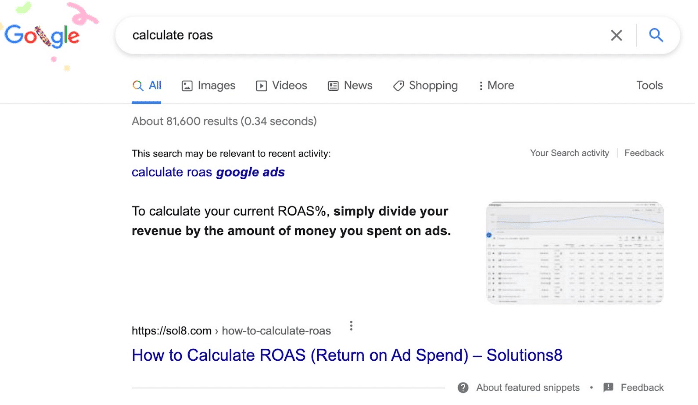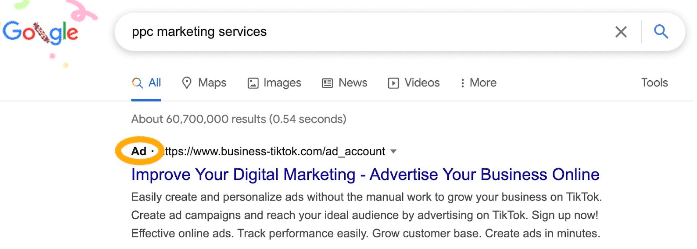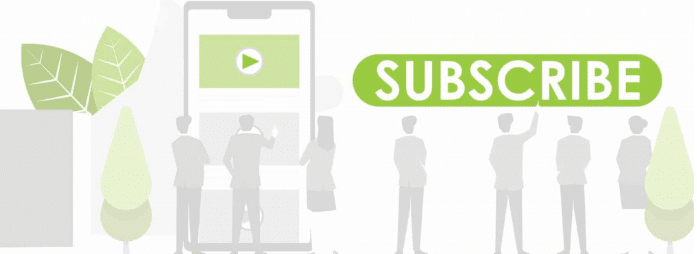SEO and PPC are both effective search engine marketing tools for lead generation and sales, but should you be running both?
If not, which one should you be using? If yes, which one should you be using first?
That’s the decision we’ll help you make in this blog post. Let’s get started!
Content:
What’s the key difference between PPC and SEO?
What is PPC?
What is SEO?
Factors to consider when choosing between PPC and SEO
Still can’t decide between PPC and SEO? Here’s what to run first!

What’s the key difference between PPC and SEO?
The key difference between PPC and SEO is the type of traffic they drive into your site to reach your marketing goals.
SEO involves organic traffic while PPC involves paid traffic.
Here’s an example of ranking on top of the organic results in the search engine:

And here’s an example of ranking on top of the search engine results page (SERP) through a paid ad:

In addition, SEO doesn’t cost anything unless you hire a professional to do the work for you, but PPC costs money every time a user clicks on your ad.
Let’s examine each marketing tool separately in the next sections.
What is PPC?
Pay-per-click (PPC) is a type of paid marketing method that allows you to pay a set amount each time someone clicks your listing, rather than paying per impression (impressions are the number of times your listing shows up across the network).
The idea behind PPC is that if you pay to be listed first for a search term, you will get more clicks and traffic.
PPC is a great way to get traffic quickly when you’re ready to launch a new product or service, or need an immediate boost for a special offer or promotion.
Google Ads and Bing Ads are examples of paid advertising platforms, Google Ads being the most widely used.
Social media platforms like Facebook, Instagram, LinkedIn, and Twitter also allow you to advertise directly from their ad creation interfaces.
What is SEO?
Search Engine Optimization (SEO) is about optimizing your content for search engines so users will easily find you when they’re looking for products or services like yours.
You need to use strategic methods like keyword research and link building to ensure that your website shows up for relevant searches.
You also need to create high-quality content and make sure your site’s metadata (i.e. title tags, meta description, etc.) and code is clean and easy to crawl.
SEO can even help boost your rankings without spending a dime. Just keep in mind that even though you don’t have to spend much on SEO methods, they still take time, effort, and patience to be successful.
Factors to consider when choosing between PPC and SEO
PPC and SEO can both rank sites well, but each method has its own set of strengths and weaknesses.
Here’s a breakdown of the main differences between the two in terms of goals so you can decide which will work best for your business.

1. Immediate Results
If you want immediate results, start with PPC campaigns.
They’re very easy to set up and you can even begin seeing results immediately after setting up your campaign.
For SEO campaigns, you can see results in as little as three months.
But because the process requires so much more time and effort, it’s difficult to stay on track.
2. Budget Control
One of the biggest advantages of paid search advertising is the ability to control your budget.
The direct cost for SEO can be hard to take note of, especially if you’re creating content on your own.
With PPC, you can set a daily spending limit and stick to it.
After setting your spending limit, the next thing you can do is calculate the number of products you can effectively promote on Google Ads with your budget.
3. Monitoring
For PPC campaigns, platforms like Google Ads don’t only give you access to tools that can help you monitor how successful your campaign is.
They also give you reports on exactly how much you’re spending, how many visitors click on your ad, and how many visitors convert into customers.
For Google Ads, you can access the reports in just a few clicks in Google Analytics, making it easier for you and your team to have data-driven insights for analysis and future campaigns.
Monitoring SEO campaigns can be difficult since it takes longer for results to show. As a result, it’s hard to pinpoint which parts contributed to your success.
4. Cost
PPC campaigns require more upfront capital and they get very expensive in competitive industries.
There are ways around this though, such as factoring in your cost per click (CPC) and projecting your performance.
SEO on the other hand is “free” as long as you already have content on your site or blog.
To make sure you have relevant and quality content, you can also hire content writers or SEO specialists- which is often cheaper in the long run than running PPC campaigns.
5. Audience Targeting
Another major advantage PPC has over SEO is its customization options- which include audience targeting.
Audience targeting is crucial for every business because no matter how perfect your ad is, if it’s not seen by “your people,” all your efforts and resources will just go to waste.
PPC allows you to easily target your prospects and the people who are searching for your product or service.
You can target audiences based on their interests, location, age, gender, profession, and even income.
You can also tweak your PPC ads anytime so your marketing message stays up-to-date and relevant. This is beneficial if you want to offer discounts or special deals during certain times of the year or for a limited time.
You don’t get to do these easily when using SEO.
6. Long-term Benefits
Think of SEO as a long-term strategy to help your business build credibility and sales over the long haul. It’s an investment.
Your efforts could pay off over time as search engines begin to rank your site higher and higher in response to your relevant and good-quality content.
Some blog posts even gain traffic months after publishing just because they have relevant keywords to the current news or hype.
SEO is perfect for brands and businesses that want their site to be an online hub in their industry and are willing to invest the time and energy into developing strong content.
For PPC, once you stop your campaigns, sales immediately stop as well.
PPC is perfect for anyone who wants to get quick results without investing a lot of time or energy into a long-term strategy.

Still can’t decide between PPC and SEO? Here’s what to run first!
For the best results, run PPC campaigns first.
And yes, you read first because PPC and SEO are like your hands- sometimes they each do the job by themselves, and other times they work together.
Both have their place in your digital marketing strategy and when used correctly, they can work together to help you achieve your business goals.
PPC campaigns bring results in terms of driving traffic quickly, as well as growing that traffic to ensure your site has a solid base of support for the future.
SEO is a longer game but it’s also for establishing your business for the long run.
To help your SEO work faster, you can apply the strategies you’ve made in running PPC campaigns.
To ensure steady profit growth, you need to give your PPC campaigns enough time to collect data, then you should analyze the results to optimize your digital marketing strategy which includes your SEO.
PPC campaigns will get your name out there and SEO will let your name stay up there.
If you need help getting started with your PPC campaigns in Google Ads, we’re here to help! Here at Solutions 8, we know everything there is to know about Google Ads. You can also head over to our YouTube channel for daily education and free knowledge bombs.
Author
Patience is the former director of marketing and communications for Solutions 8. A phenomenal content writer, copywriter, editor, and marketer, she has played a prominent role in helping Solutions 8 become an authority in the Google Ads space. Patience is also the co-author of The Ultimate Guide to Choosing the Best Google Ads Agency and You vs Google.
 Patience Hurlburt-Lawton
Patience Hurlburt-Lawton

